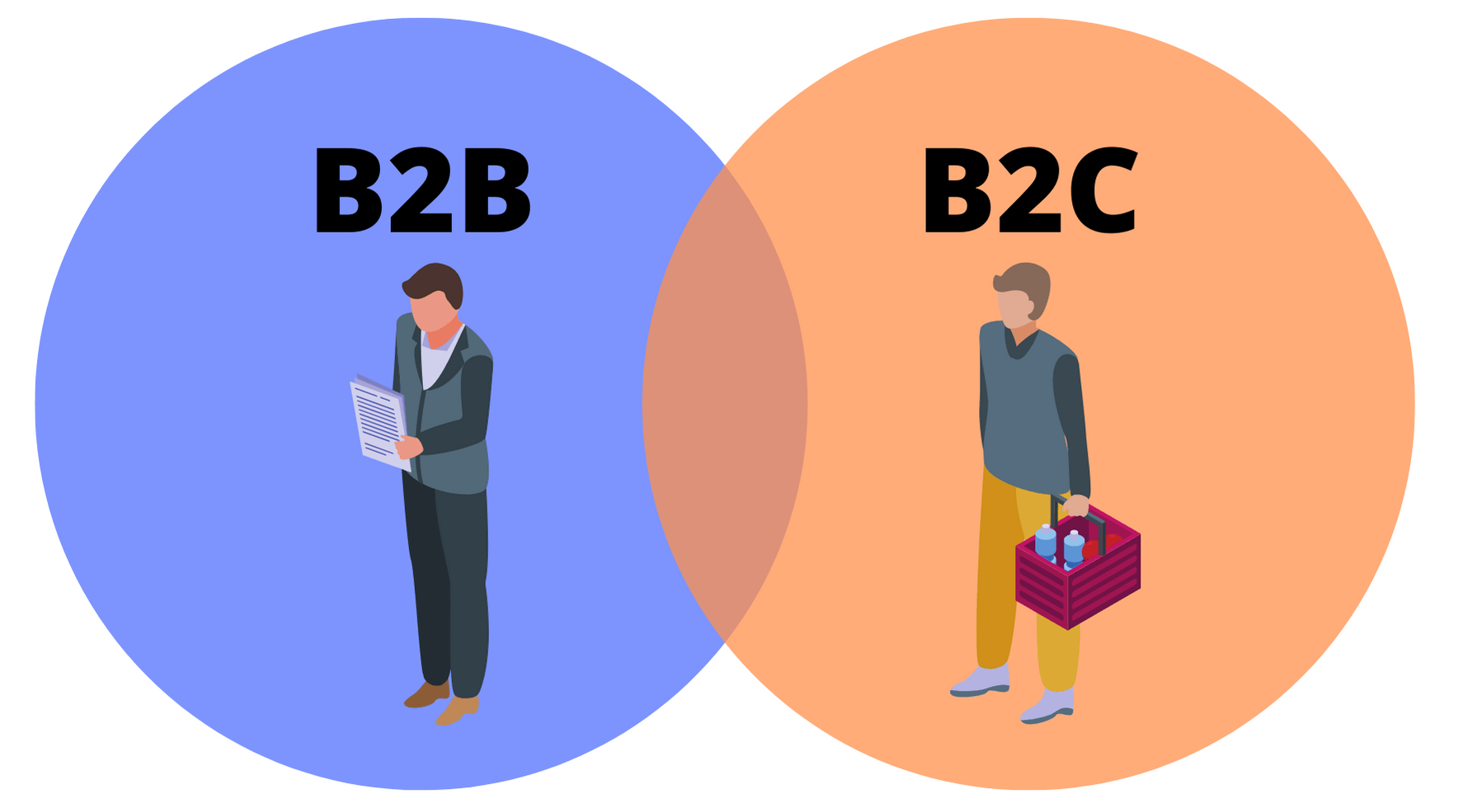What’s the Difference Between B2B and B2C Marketing?
Many business owners think marketing is simply a set of generic tactics used to drive growth and revenue. In reality, effective marketing is far from generic. Your audience—your who—means everything when it comes to building out your marketing strategy. Your who will drive nearly every decision you make, from how you build your brand to how you communicate your message.
And when it's time to identify your audience, the first question you must ask is, "What type of customer am I aiming at?" Understanding your ideal customer type is the first step in building an effective marketing campaign.
B2B and B2C: What’s the Difference?
B2B: Business-to-business (selling your product or service to other businesses)
B2C: Business-to-consumer (selling your product or service directly to consumers)
Just like the audience members are different in each of these groups, so is the marketing approach you should take. Here’s what you need to know about marketing for B2B vs. B2C
B2B Marketing
Marketing aimed at other businesses is certainly different for several reasons, the biggest one being your messaging. Businesses make purchasing decisions based on who can offer the best product for the lowest price. Therefore, your message will focus primarily on why you’ll provide a better ROI than your competition.
You’ll also want to make sure you identify some of the most common issues faced by these businesses. This shows that you understand their problems and can provide a solution. Explain how your product or service will make their lives as business owners easier and more convenient or how your product will be a great fit for that business's customers. Even something as simple as fast turnaround on orders or favorable credit terms can be used to stand out as the best choice for them.
Making your “brand story” come to life with data and real-life examples of how you’ve helped other businesses will also provide social proof, a powerful motivator. Above all, remember that your message should be about the people who will be using your product or service, and how their company benefits from working with you.
B2C Marketing
While B2B focuses communicating an ROI, B2C relies much more on emotion. Consumers see hundreds of ads a day, which means you have a lot of competition to get their attention. The best way to do this is through a marketing message that connects on a more personal level.
Like B2B marketing, you’ll want to highlight the immediate benefits of your service, but in a way that connects with the end-user. Provide key selling points about your service without overwhelming customers with information. Consumers want reassurance. They're looking to do business with companies who have a track record of resolving issues and providing customer support. Therefore, your marketing should touch on your commitment to customer satisfaction.
When it comes to marketing for consumers, the key is to think about what gets you to buy into a product or service and incorporate those personal details into your campaigns.
An Example of B2B vs B2C Marketing
Imagine you're a cabinetry company. You need to decide if your ideal customer is homeowners looking to remodel their kitchens or home remodeling companies that could carry your product line. This decision determines whether you'll do B2B or B2C marketing.
B2B: If your company wants to sell to other home design or remodeling companies, you might emphasize that you are one of the top selling brands in the country and have a variety of designs and material options for customers to choose from. This helps home remodeling companies see they’ll have a greater chance of selling your cabinets to homeowners than if they bought from a different cabinet manufacturer.
B2C: If your company wants to sell directly to homeowners doing DIY projects, you might focus on how your cabinets are simple to install, can match any style, and will make it easier to keep a busy home organized. This message would resonate with consumers who aren't professional cabinet installers and are just looking to update their home and make their lives more efficient.
Be Mindful of Your Audience
Remember your audience directly affects your messaging, whether you’re selling to other businesses or you're selling directly to consumers. Once you identify who you’re targeting, you can begin planning a marketing strategy that will be aimed in the right direction.
Looking to up your marketing game? The team at Locallogy can help! Drop us a line to learn more.
Get the Latest Content in Your Inbox
Want to be the first to know about new content? Sign up to get our weekly blog posts sent to your email!









